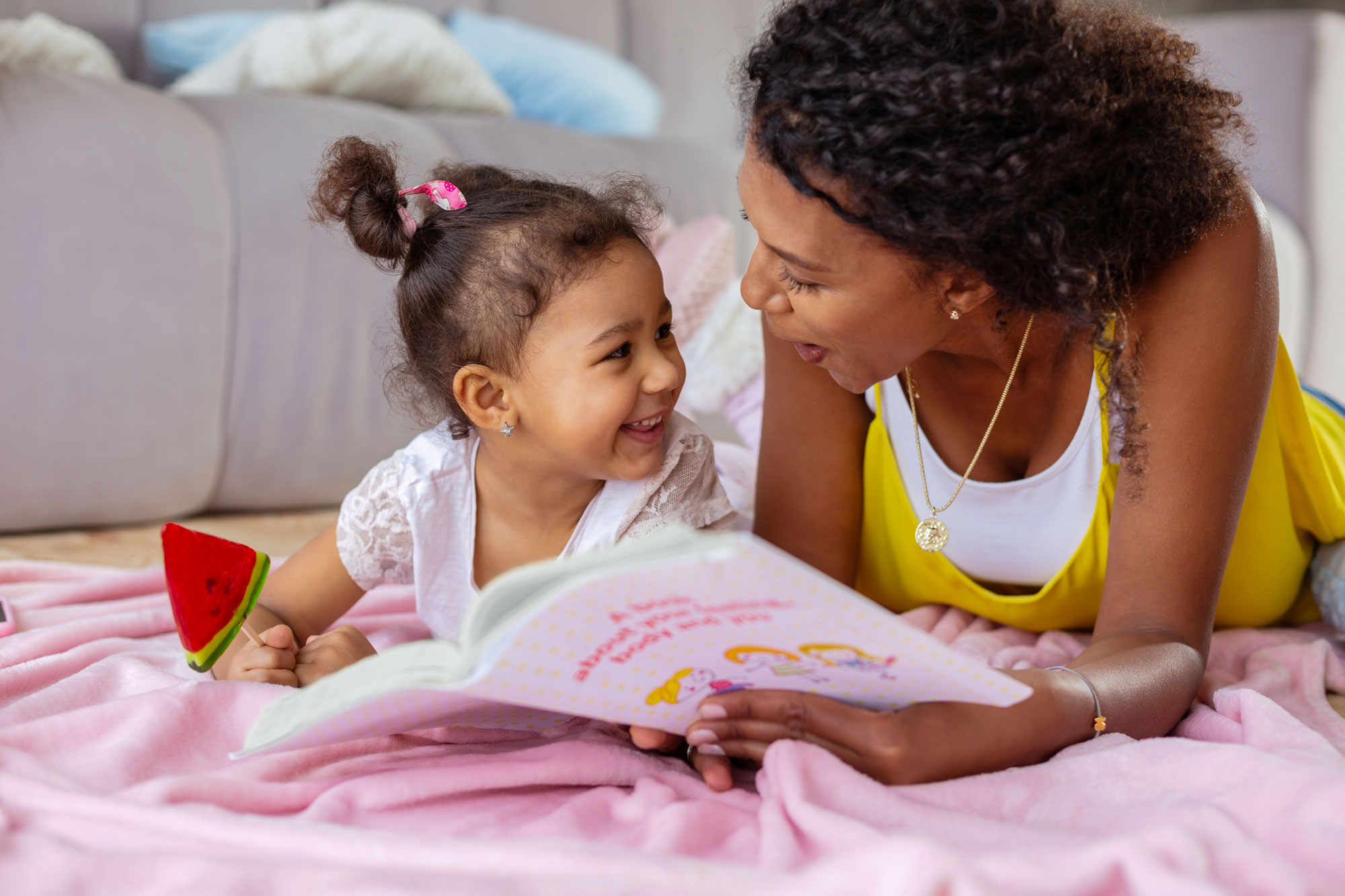Light Up Your Child’s Brain with Books!
As children head back to school, many parents wonder what they can do at home to help their child succeed in the classroom. While you can find many suggestions and activities to encourage your child’s early learning, there is one simple activity that is probably recommended over all others – read together.

There’s good reason why reading with your child is suggested so often. A lot of research has shown that reading has many benefits for young children, and it paves the way for their success at school [1]. But recently, researchers discovered a new reason to read with your child – they have found a connection between reading to children and their brain activity.
They found that children who frequently read books with their parents and have conversations about the book show more activity in the brain when they listen to stories. The brain activity was noticed in areas related to language and reading [2,3]. Researchers have also noticed that children with lots of enjoyable reading experiences at home have more organized nerve connections in the brain, which helps signals travel within and between areas of the brain [4].
This research tells us that you can, literally, light up your child’s brain when you read books together!
Tips for reading with your child
While it’s often recommended to read to your child, it’s actually best to read with your child. Instead of reading a book from beginning to end, with your child just listening to you read, try to think about the book reading as a time for conversation. Studies have shown that back-and-forth conversations promote children’s early literacy skills [5]. When you talk together about the book, it helps your child understand the story and connect the new ideas in the story to their own life experiences.
Here are some tips to get your conversations going:
- Observe your child to figure out what catches their attention during the book reading – Watch for gestures, facial expressions, and body language. These will give you clues about your child’s interests. These interests will be the topics of your conversations.
- Wait, without talking for 3-5 seconds, for your child to participate – After you’ve said something about the book, pause and let your child take a turn. Conversations need to go back and forth, so it’s important that you and your child take turns sharing your ideas together. Waiting also gives your child time to think about what to say. Time yourself (3-5 seconds) – waiting is hard, but it really encourages your child to communicate with you!
- Listen to what your child says – Listening carefully lets your child know that you are interested in what they have to say, and motivates them to keep the conversation going.
- Ask open-ended questions – These types of questions don’t have a right or wrong answer, and they encourage thinking and conversation. Open-ended questions usually cannot be answered with a simple “yes” or “no”. For example, if a character has a problem during the story, some open-ended questions could include: “Why do you think he…?” “I wonder what would happen if he…?”, “Hmm, what could he try next?” or “What would you do if that happened to you?”. Make sure your questions relate to your child’s interests during the book. If you follow your child’s lead and notice what’s caught their attention, it will help you know what kind of question to ask.
- Avoid “conversation stoppers” – Children tend to shut down when we ask them too many questions or questions that are too difficult for them to answer. Questions that test your child also tend to stop the conversation (for example, “What colour is that?”), whereas questions that are based on your child’s interests tend to keep it going.
It really doesn’t matter what the book is about, or if you even read the whole story! It’s the back-and-forth conversations you have with your child during the book that make the difference. Not only will these conversations help your child understand stories, and learn new ideas and vocabulary, but they will also encourage a love of books and reading from a young age.
For more tips about encouraging your child’s early literacy skills, take a look at our guidebook, I’m Ready!™ How to Prepare Your Child for Reading Success.
Similar articles by tag:
